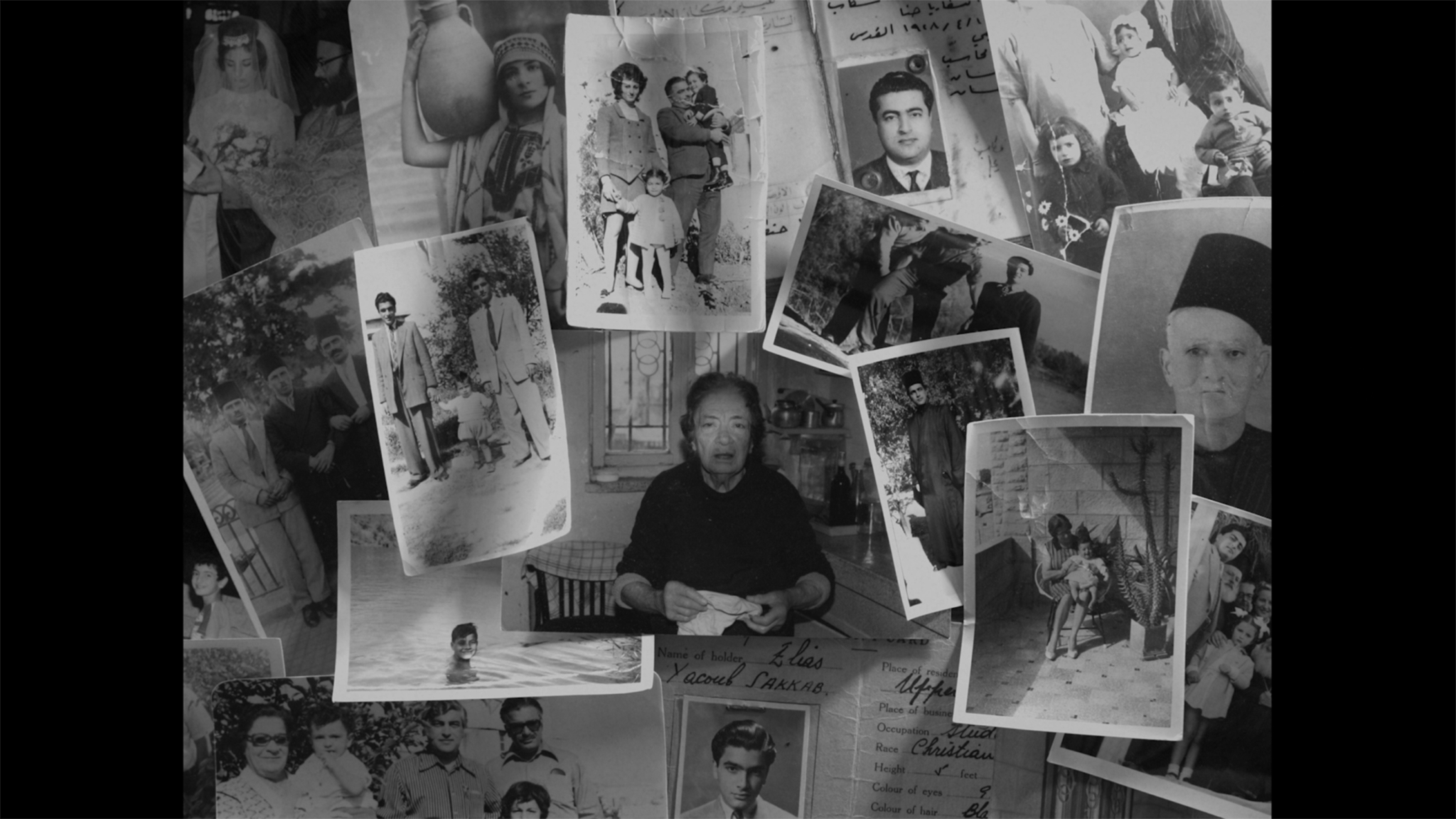
The annual festival returns from 15th – 29th November with a reliably powerful selection of films curated by founder and director Khaled Ziada and his team.
“It was a matter of urgency that this year we open with Gaza and close with Gaza”, says Khaled Ziada, founder and director of the London Palestine Film Festival, which, from the 15th until the 29th November will once again bring a tightly curated selection of Palestinian and Arab cinema to the big screen.
The festival has been a staple in the London film calendar year since its first installment in 2000, and has only grown in relevance over the past two years, after the conflict between Israel and Palestine began dominating the global conversation once more. With Israel’s horrifying genocide of the Palestinian people raging on in Gaza, Ziada and his team considered it crucial to acknowledge the reality of the war and show solidarity to those who have lost so much and continue to resist Israeli oppression. However, due to the inability of filmmakers in Gaza to attend the festival, virtually or in-person, without obvious risk to their safety, Ziada was forced to think outside of the box, commissioning director Elias Mater to develop a stage play based on Gaza itself. A one-woman show performed by Sarah Agha, The Grain of Sand follows a young Gazan girl who searches for hope amidst the tragedy and chaos unfolding around her, and will open the festival on the 15th. “It’s obviously unusual to open a film festival with a one-woman show as opposed to an actual film,” Ziada said of the play, “but It didn’t make sense to open with a film that doesn’t directly acknowledge what is going on in Gaza right now. Elias worked for months researching, rehearsing and crafting a powerful play based on the reality taking place as we speak.”
Closing the festival—with extra screenings expanding to Leeds, Oxford, Cambridge, Liverpool and more for the occasion—is From Ground Zero, a 2024 anthology film spearheaded by well-known Palestinian filmmaker Rashid Masharawi in which he asks 22 filmmakers in Gaza to create short films based on their stories and experiences during the war. “The result is organic reporting directly from the cameras of the people themselves rather than simply a news outlet.” Ziada explains. “Oppression makes it mark in different ways. Palestinian filmmakers in Gaza and the West Bank have limited access to archive materials, to freedom of movement, to resources, and yet, amazingly, within these limitations they still find ways to communicate their reality through cinema and make these beautiful films. Cinema is a tool of resilience. You find that in the cinema of Palestine, very clearly.”
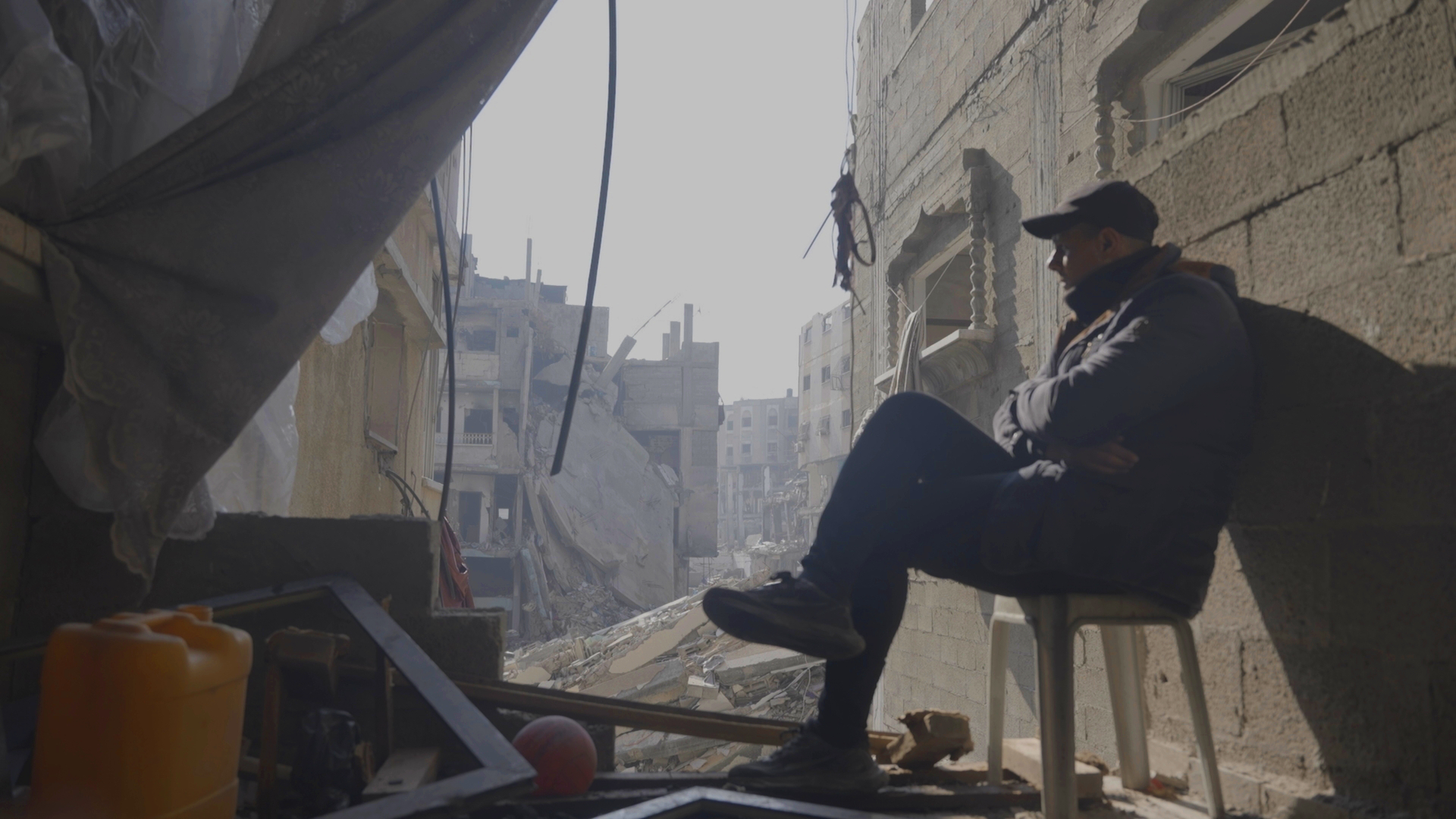
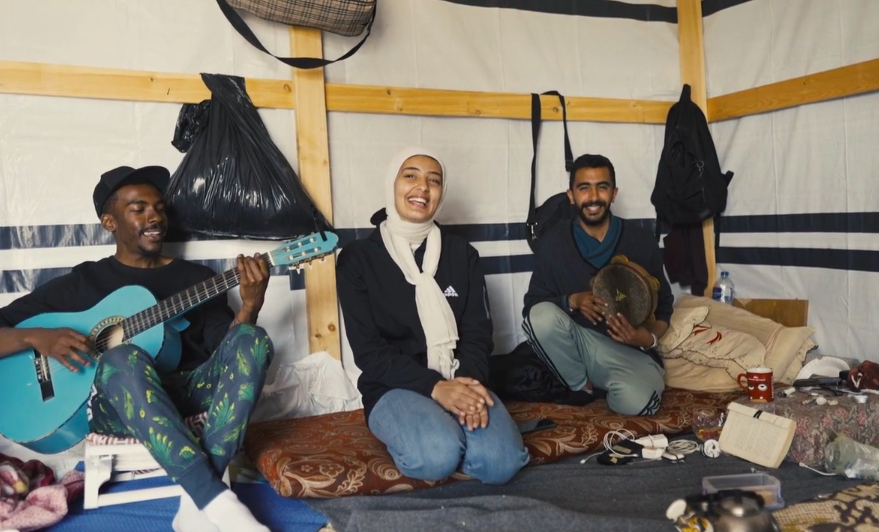
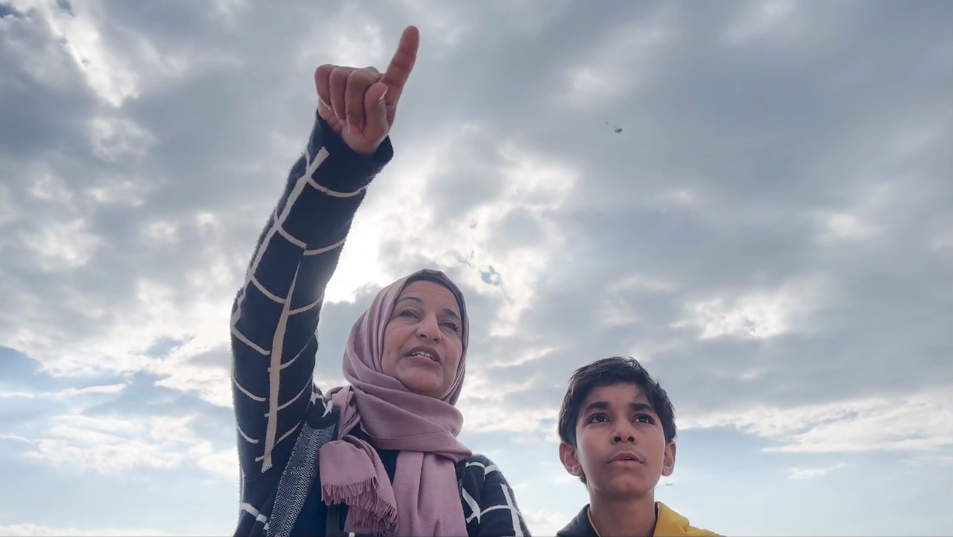
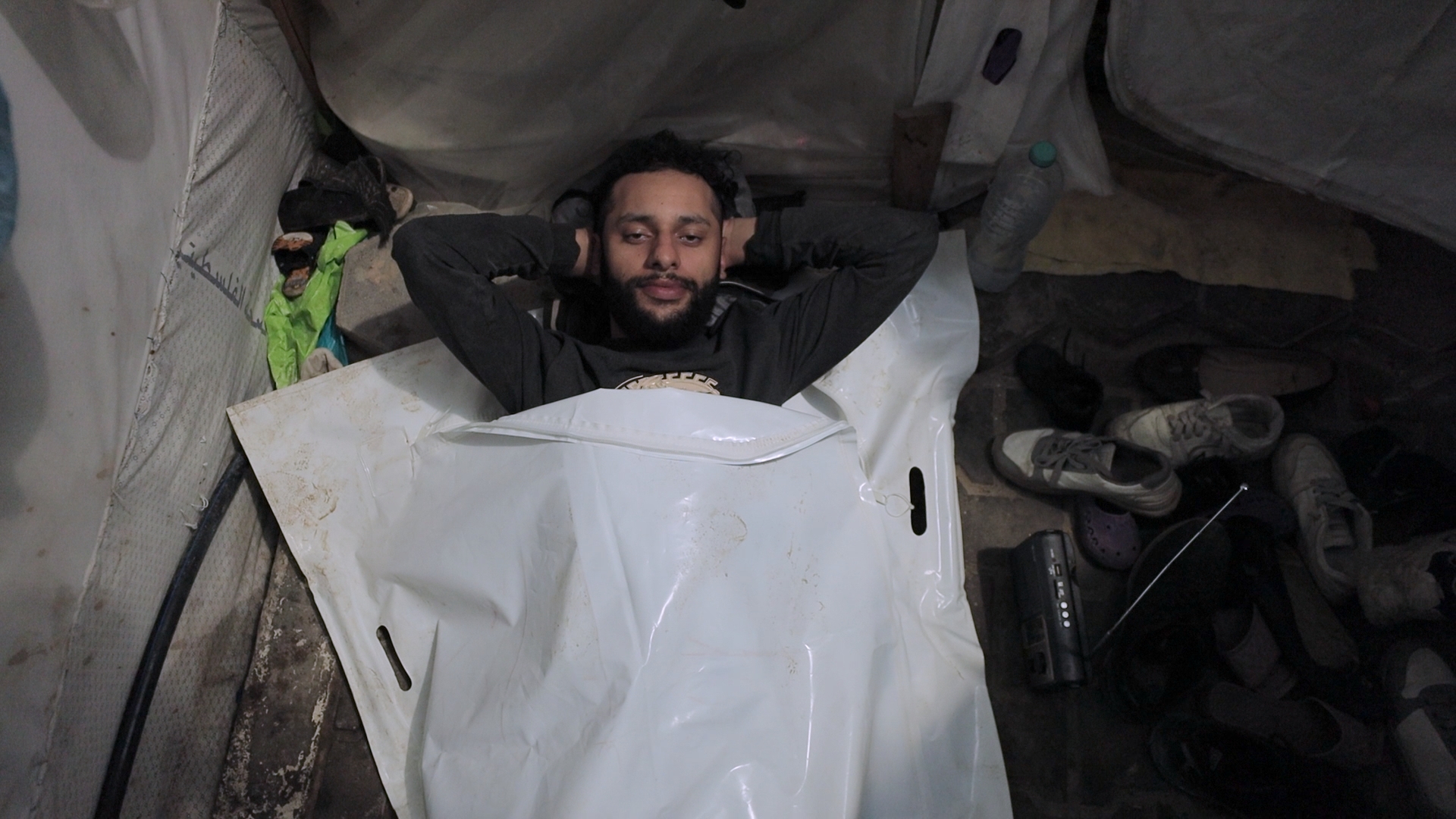
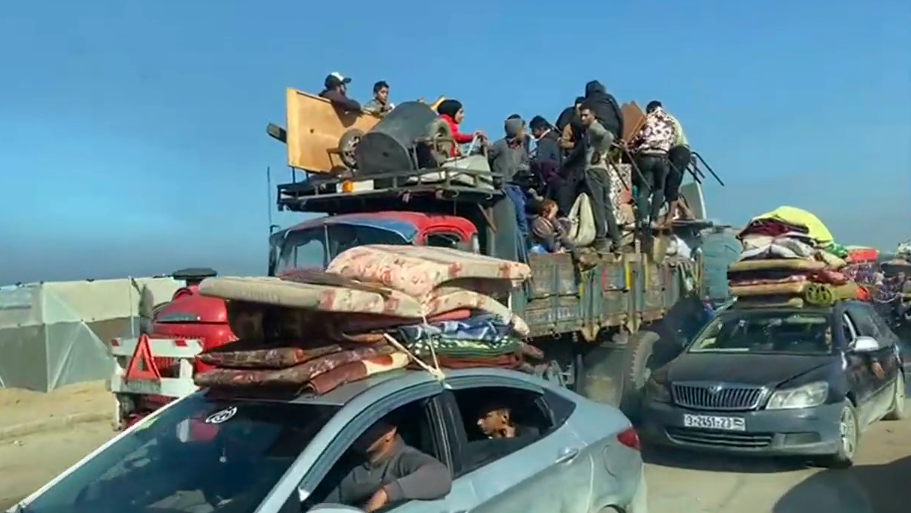
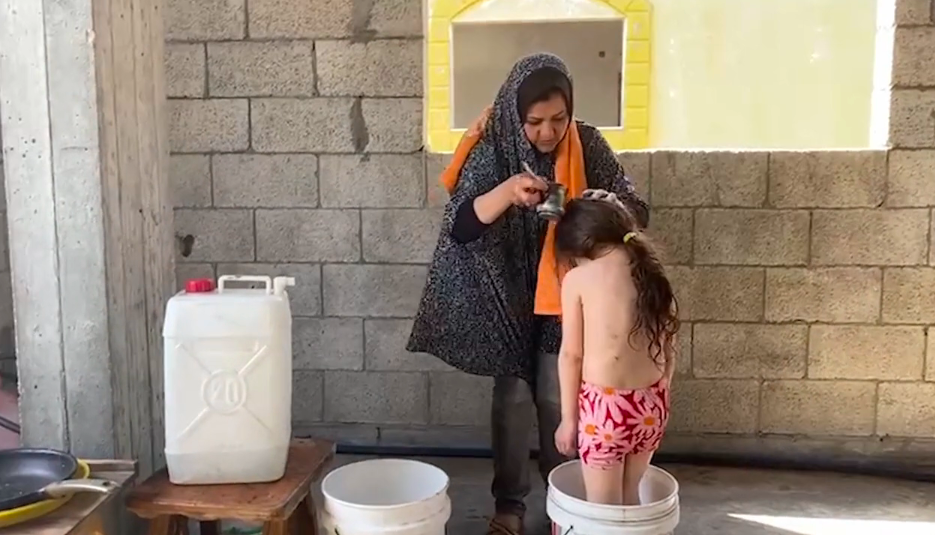

Despite this, the philosophy of the London Palestine Film Festival remains more or less the same this year as the years prior, with the ultimate goal to shed a light on both contemporary Palestinian cinema and its long-spanning, often overlooked heritage. “It’s important to bring older films in Palestine’s cinematic history to audiences who may not be aware of them,” Ziada says. “This is revolutionary cinema that deserves to be seen. We’ve noticed our audiences developing every year, wanting to learn more about the history of Palestinian cinema, and our programme is designed to empower their knowledge as best we can. Now you have young filmmakers trying to bring the history of Palestine to life on film. They don’t want to just tell stories about current times, they want to keep the historical voice of Palestine alive through cinema.”
This year’s lineup appropriately reflects Ziada’s sentiments with a wide variety of powerful films, events and screen talks such as a triple bill of shorts by artist and scholar Oraib Toukan, 2024 gems The Teacher and The Land Unknown, as well as Eyal Sivan’s 1991 Izkor: Slaves of Memory, which Ziada highlights as a film he’s particularly excited for audiences to see. ‘It’s a film that feels as relevant today as it was in 1991 when it was released” He says. “Exploring how the education system in the so-called “Western Democratic” state Israel is based on brainwashing their young population and preparing them for military service from age three years old until high school. It gives some important insight to the structure of Israeli society.”

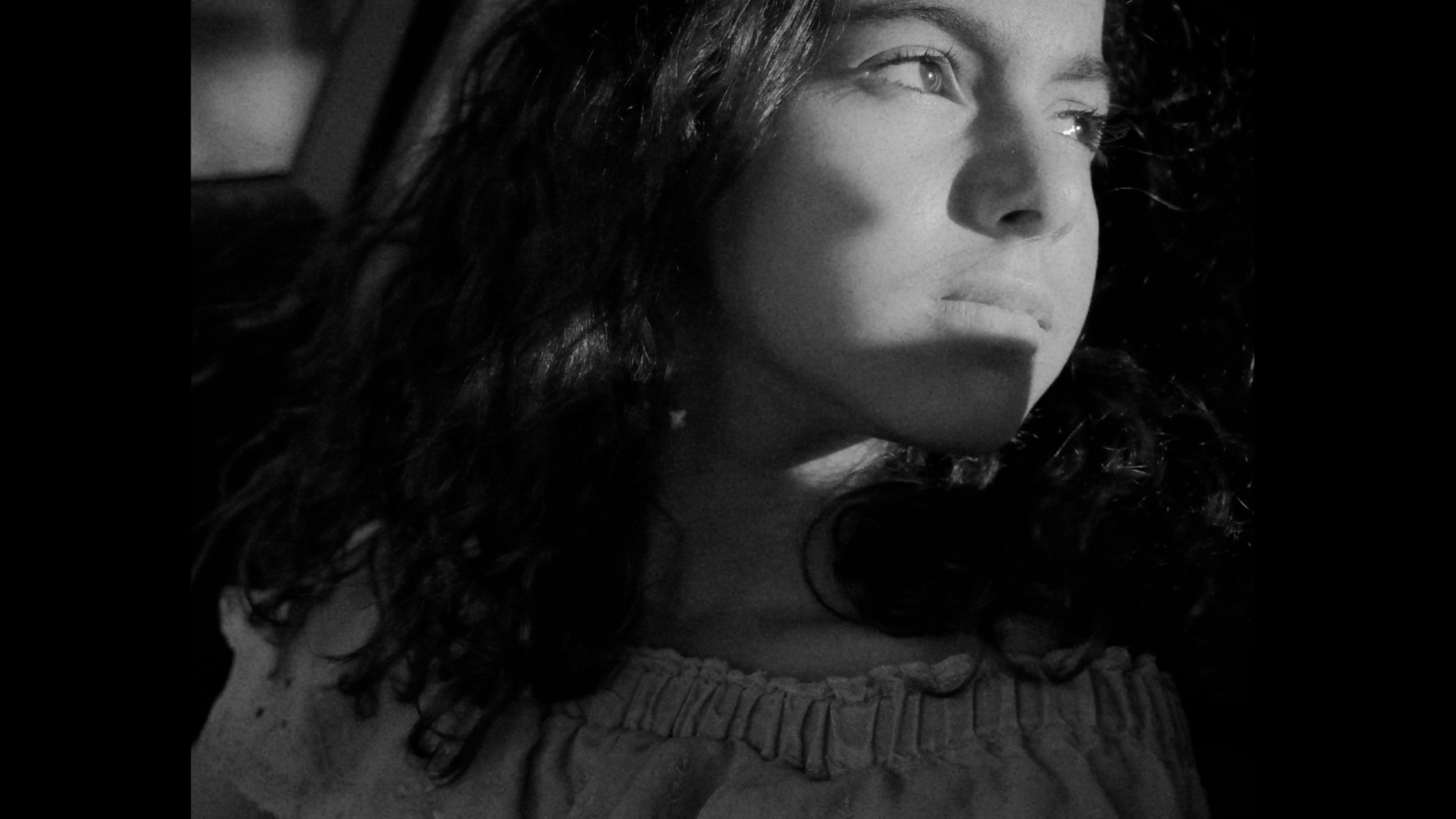

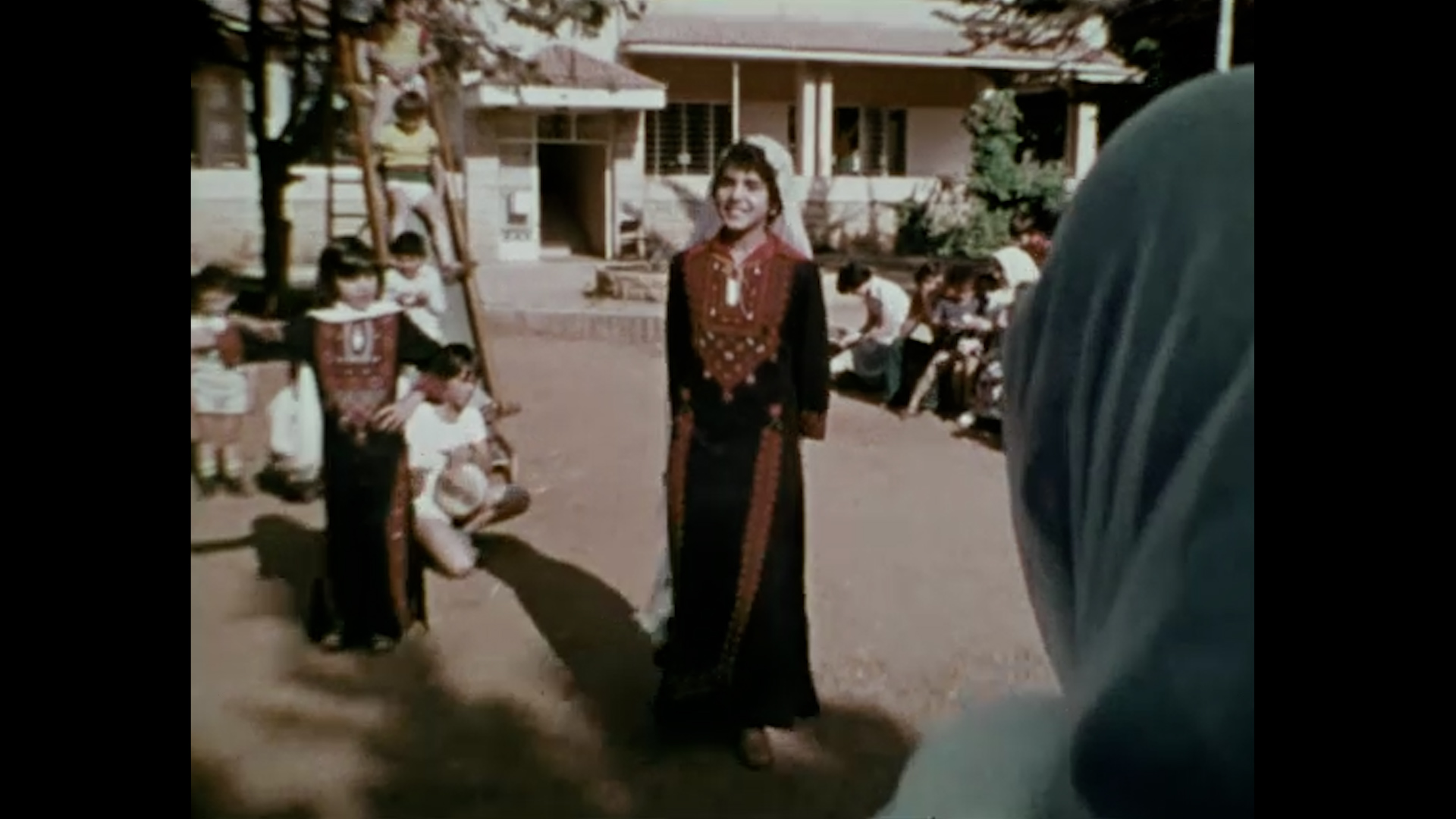

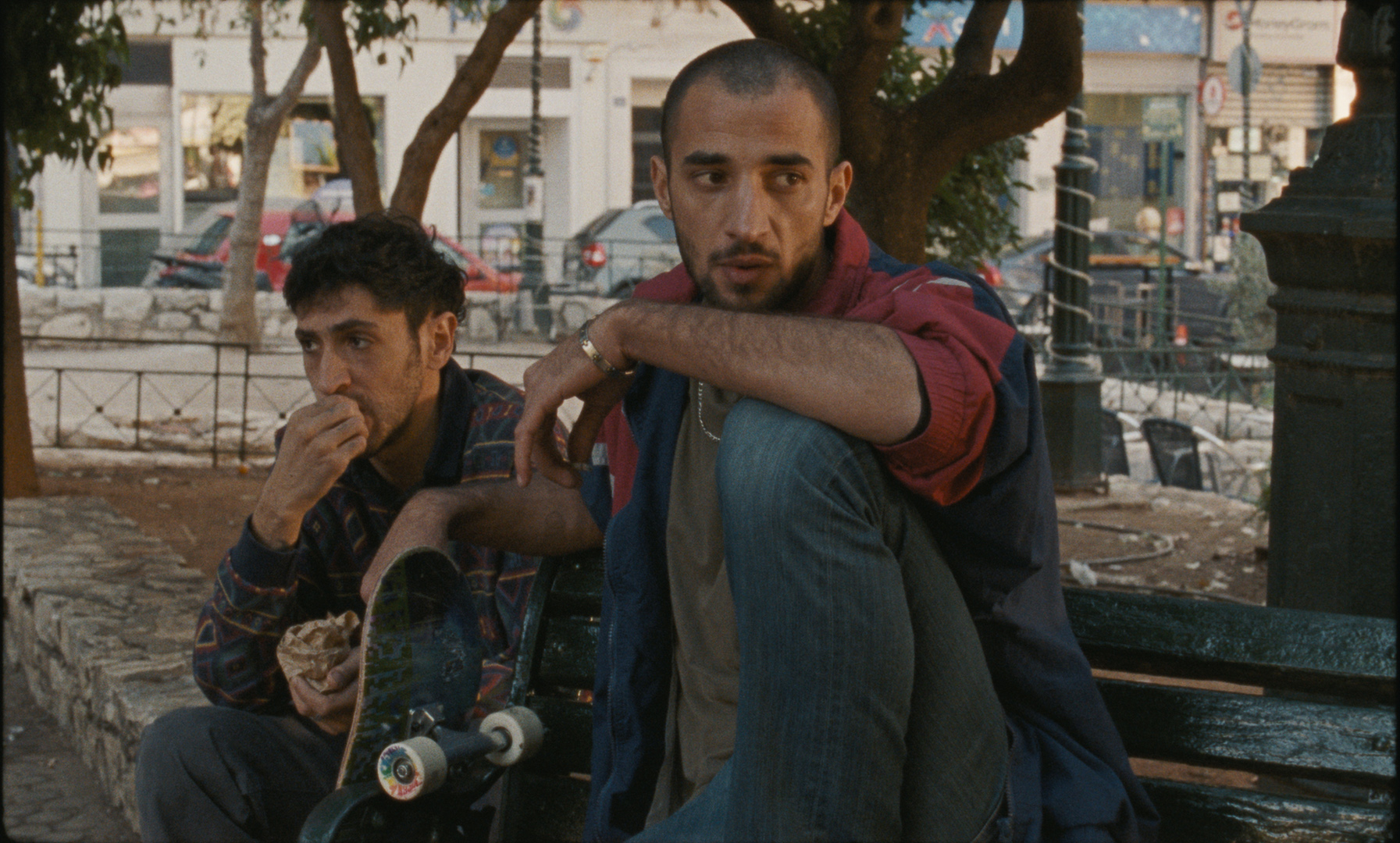
Another highlight of the festival this year isn’t a film at all, but a book launch. “Every festival we try to bring attention to a book about Palestine cinema. There’s a great number of students who do their PHD or masters on Palestinian cinema, so we feel it is important to bring some writing from the academic world into our programme.” This year’s book is Afterlife of Palestinian Images by Palestinian filmmaker and researcher Azza El Hassan, described as “a groundbreaking study of how colonial violence alters and changes visual objects—which in turn affects how a society and culture relates to its own images.”
Ziada maintains, however, that he and his team curated this year’s programme with the goal that no one film or event should take precedence over another, but rather make up a tapestry of broad perspectives intended to educate audiences. “There’s no repetition in the messages we see in these movies.” Ziada says. “If someone manages to see even four or five films at the festival then they will still learn a great deal about Palestinian history and culture.”
The London Palestine Film Festival is taking place from 15th — 29th November. You can explore the programme and find tickets here.





